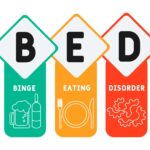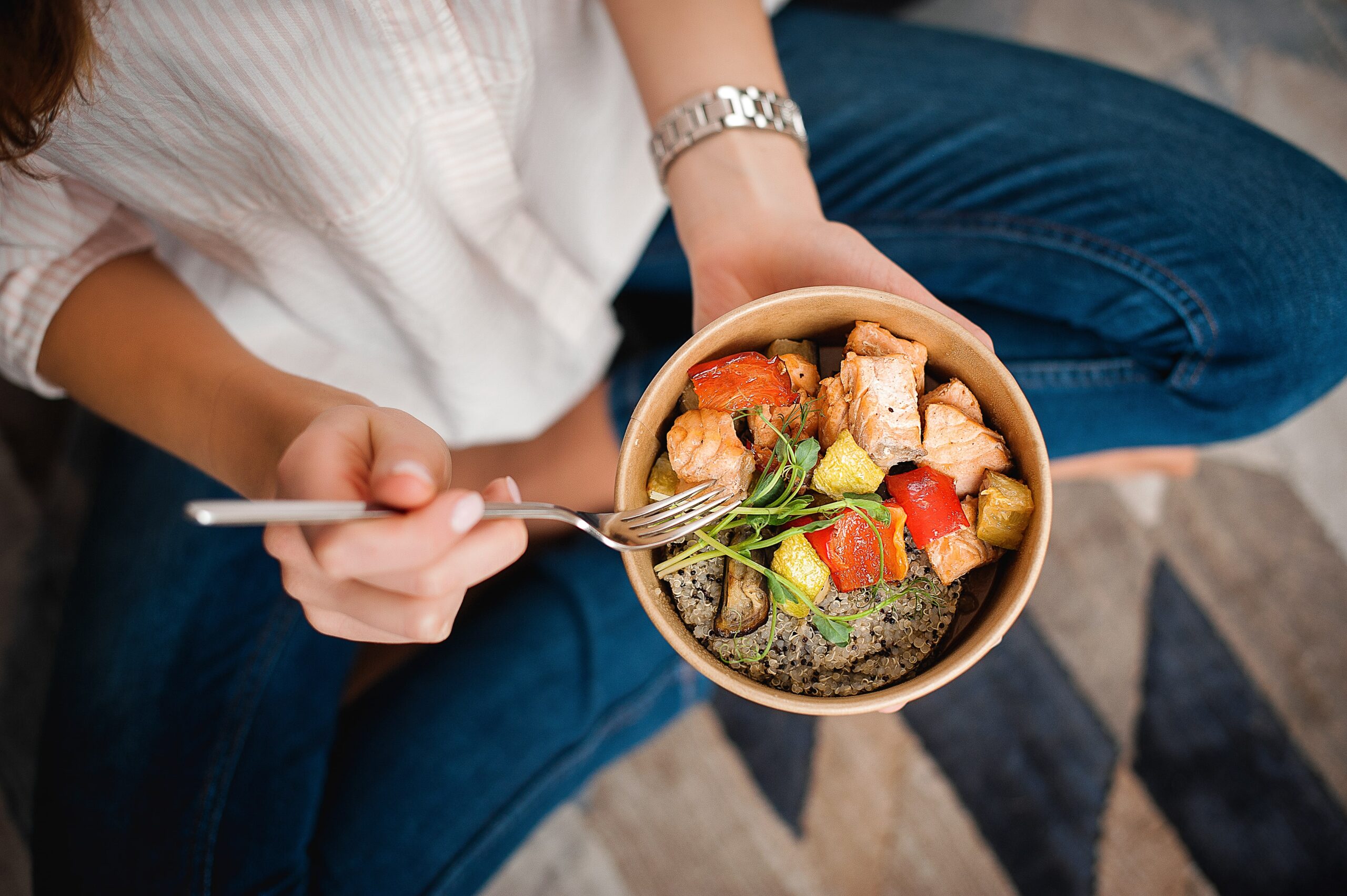Move past the fear of weight gain and find food freedom
Do you agonise over the food you eat?
Do you feel crippled with self-doubt at the thought of not trying to lose weight? Does it feel constant?
The idea of not dieting can be very scary.
When we talk about this with our clients, they often describe dieting similar to deleting an ex-boyfriends’ number. You know you should stop talking to them because it never ends well, but something keeps drawing you back. The initial hope and elation does feel exhilarating; and even though it always ends up in tears, you just can’t help yourself.
Similar to dieting, your ex-boyfriend served a purpose in your life.
Maybe dieting, or the intention of ‘being’ good, is a way to cope with life.
It is for a lot of women.
When we take that coping mechanism away, we feel insecure, unsafe and down -right frightened. Common fears when we ask people to ‘reject the diet mentality’ is a fear of not being able to stop eating.
When in fact, dieting (aka restriction, starvation or whatever else you want to call it) is the trigger for over-eating.
Want to know how to feel out of control around food? Tell yourself you can never eat that food again.
The forbidden fruit syndrome
The second we tell ourselves we aren’t allowed to eat something, there is nothing else we can think about it.
When we banish diets and learn to tune into our internal hunger cues, your body will guide your eating; not a meal plan or diet plan or food plan.
In fact, if you’re relying on a meal plan to tell you what, when and how much to eat, we have a real problem*.
If dieting has become your way to cope with life, you’re not alone. It has for many people.
Some people have been on and off diets their whole life (we’re talking 50+ years). It has become so normal to pursue weight loss, that the idea of not dieting sparks fear.
This happens because you have been relying on external cues to guide your eating. And as a result, you no longer trust your body to tell you what, when or how much to eat.
What can you do?
Below we outline a step-by-step guideline to rejecting the diet mentality:
- The first step in rejecting the diet mentality is to recognise and acknowledge the damage dieting has caused.
Whether that be physical, mental, emotional or physiological. We encourage you to journal or complete a list to gather your thoughts.
- Be aware of diet-mentality traits
As dieting is an engrained part of how you feel and act towards food, notice your language when speaking about food. As opposed to labelling food as “good” or “bad”, try naming food by its’ name. For example, broccoli is broccoli and chocolate is chocolate.
- Get rid of the dieter’s tools
Often without realising, dieting has become a way to cope with life. Whether that be feeling in control of your food when everything else in your life feels chaotic; or restricting as a form of self-punishment; using food as a way to cope with emotions is important to recognise. This isn’t necessarily wrong; we have all turned to ice cream when we have had a our hearts broken. However, the frequency at which this happens should not be a way to cope with life.
- Self-compassion
Forgiveness, kindness, care and love shouldn’t just be reserved for your good friends. You deserve it too. Through self-compassion we learn how to care for and nurture ourselves, because we believe we are worth it. Hey, we all have things we don’t love about our self and this is about learning how to accept ourselves and be kind.
Always be kind
And, in the wise words of Lindo Bacon: “The best way to win the war against fat is to give up the fight”
To learn more about the wonderful programmes and support we offer, email [email protected] to find out more. We can’t wait to work with you.
Ariana Rodriguez, RD, MSc
Team EHL x
*Please note meal plans are appropriate on an individual basis (especially in the eating disorder population for weight restoration) under the guidance of a Registered Dietitian and should never a be long-term intervention














